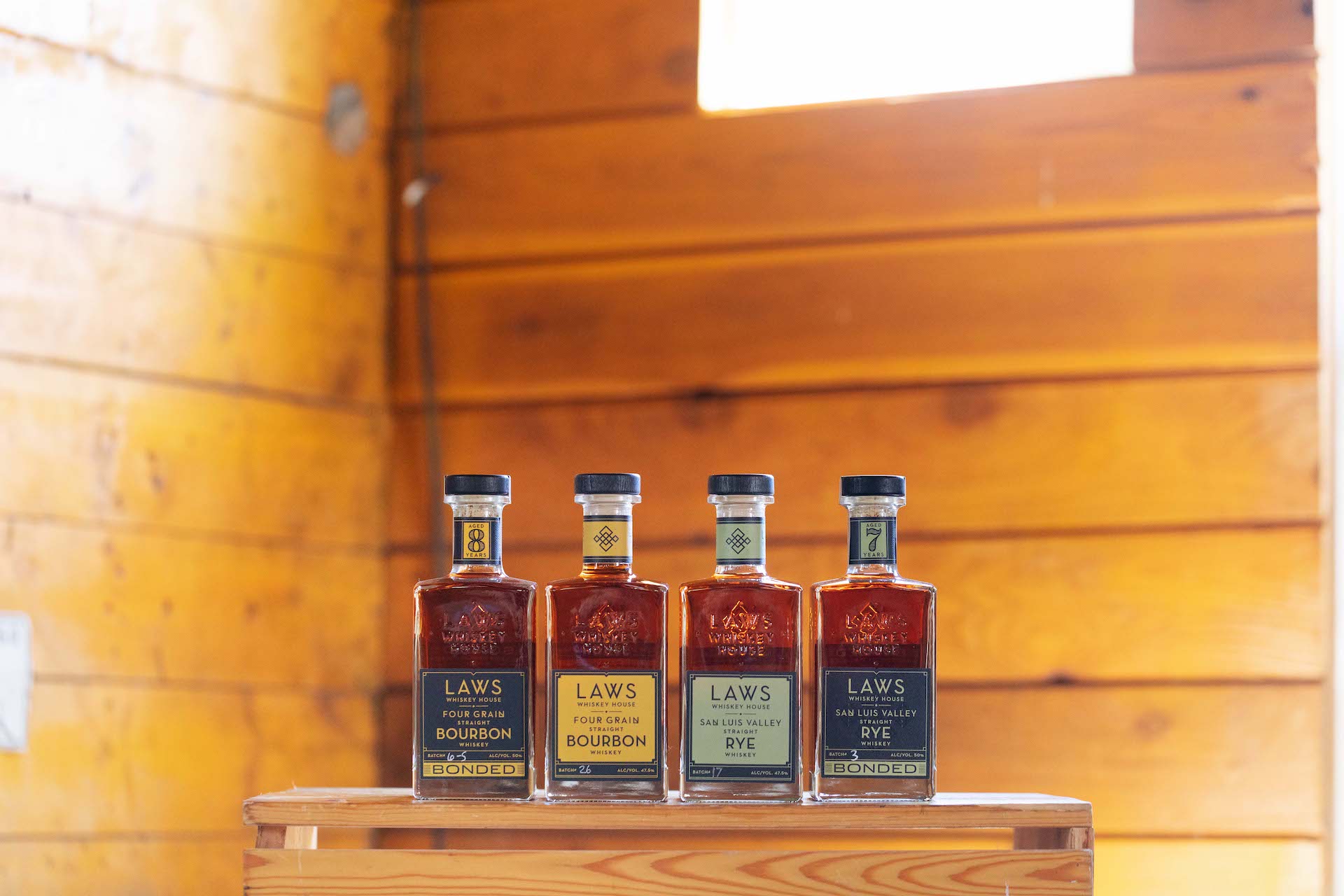
When one stops to consider the place where whiskey is born, the locations that come to mind are the rolling green hills of Scotland or the dusty country roads of Kentucky and Tennessee, ridden horseback with a worn cowboy hat, perhaps. Colorado isn’t necessarily the location we associate with truly great, impeccable whiskey. Apres ski-buttered rum or Rocky Mountain-cold beer, sure. But for better or worse, Colorado hasn’t exactly been known for its whiskey – until now.
As it would turn out, Colorado’s climate and natural ingredients make for something of a perfect whiskey-making environment, and one special distillery is taking every advantage.
Elevation and climate make Colorado ideal for making whiskey
Laws Whiskey House , a Colorado-based whiskey distillery, is reimagining great American whiskey by creating unique and bold flavor experiences that directly reflect the environment in which they’re grown and produced. Laws Whiskey House attributes these bold flavor experiences to the rugged growing conditions of the Rocky Mountain region, as they stress the grains just enough to create rich, robust, and bold flavors. This high-elevation desert environment also provides a dry climate with large temperature swings and big barometric pressure changes with storm cycles. These conditions uniquely age whiskey.
Sam Poirier, Head Distiller at Laws Whiskey House, told The Manual, “Elevation does affect the distillation process in that there are lower atmospheric pressures at higher altitude, resulting in slightly lower distillation temperatures, but I would say that the over climate associated with areas at higher elevations plays a larger role throughout the production process. This is especially true when talking about maturation.
“Denver’s wide temperature swings and pressure changes that roll off the Rockies result in the spirit having constant interaction with the oak barrels,” Poirier continued. “In a semi-arid climate, water evaporates faster than alcohol, so the proof of the spirit rises much faster than it would in a humid climate, again resulting in a unique interaction with the wood. Those unique barrel flavors and aromas paired with our grain-forward spirit create a full body and rich whiskey that could not be mimicked in another environment.”

Of course, Colorado’s magic isn’t limited to its elevation or uniquely beautiful weather. The ingredients that grow and the water that flows from Colorado soil and rivers are also special when it comes to whiskey-making. Laws uses only fresh mountain water from Eldorado Springs and heirloom varietal grains grown by family farmers.
“From the soil to the elevation, we’re reaping the benefits of everything Colorado has to offer. Our Wheat, Rye, and Barley hail from the Cody Family Farm in the San Luis Valley. Nestled at a lofty 7,500 feet above sea level, the San Luis Valley is one of the highest growing regions in North America and gives our grains unique flavor profiles thanks to the distinctive growing conditions and the calcium and mineral-rich soil remnants of a prehistoric lake. The altitude and high elevation play significant roles in both the distilling and maturation processes, and frequent barometric pressure swings contribute to a very active and unique aging process. It’s a point of pride for us to declare that Laws is Grown, Distilled, Aged, and Bottled right here in Colorado,” Casey Rizzo, Brand Education and Marketing Manager at Laws Whiskey House, told The Manual.

Grains matter
Great whiskey starts with great grains, and it’s long been common knowledge that Colorado does grains the right way. Of course, while we may have only considered these top-quality grains as ingredients for brewing some of our favorite Colorado beers, Laws cleverly took things a step further.
Rizzo says, “Colorado has long been known for its high-quality grains, initially used in the brewing industry. The soulful, rich flavors of our uncompromising whiskey start with our commitment to using only heirlooms and top-quality grains. Modern agriculture may overlook these low-yield, temperamental grains, but we couldn’t craft the distinct profile of each Laws Whiskey without them. The incredible flavor profiles emerge from the unique soil composition found specifically in the corner of the valley where The Cody Family Farms reside. To the west lies rocky soil, and to the north, sandy soil, both draining too quickly. Just east, tighter, saltier soil poses challenges for plant growth. However, on the Cody farm, the soil strikes a perfect balance, holding the secret to Laws Whiskey perfection.”
Lastly, and perhaps most importantly, it’s the uniquely spirited nature of Colorado itself and the nod to its not-quite-forgotten Wild West rebellion that makes Laws so special. Colorado is home to risk-takers and free thinkers unbound by tradition, and that’s a taste that simply cannot be replicated.
“For us, our identity is intricately woven with Colorado, and we take immense pride in contributing to the tapestry of American Whiskey. We’re staking our claim as a true Colorado whiskey, planting our flag in the rich soil of American whiskey tradition,” says Rizzo.



